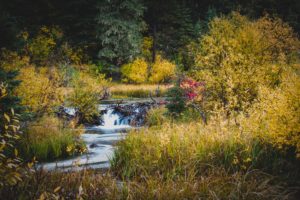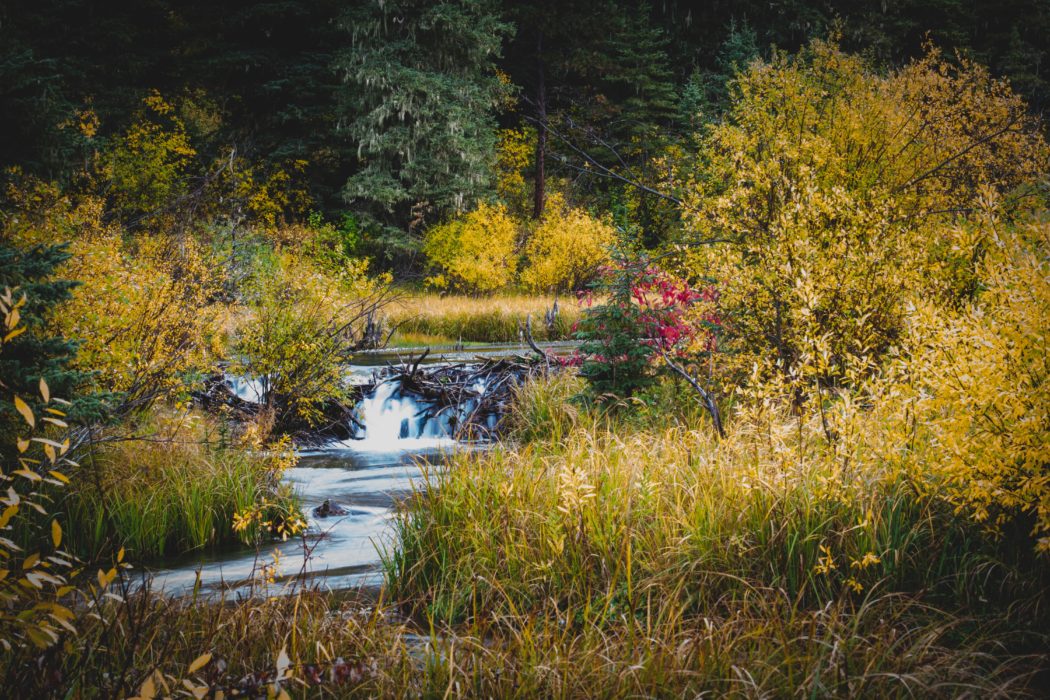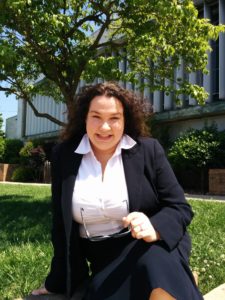 I am the whitest person in my family. My skin is even lighter than that of my completely non-Native mother. My Native heritage comes from my father’s side of the family. Passed down through the farms and the swamps along the Lumber River in south-central North Carolina. We are Lumbee. I am Lumbee.But, my hair is brown – not black. My eyes are hazel – not brown. My skin is light – unlike my brother’s and father’s and most of my father’s family. These features are not entirely uncommon among Native people (and Lumbee Natives even more so). However, my experience has been that generally non-native people don’t look at me and think, “Oh, yeah, she’s Native American.” The fact is that most people have a picture in their head of what a Native American looks like – and that picture has no resemblance to me.This fact has been the source of a nearly lifelong discomfort for me. I struggled for many years with the idea I needed to explain my Native identity (to native people and non-native people alike). Like my outward appearance was so disconnected from what other’s expected a “real” Native American to look like that I needed to add an addendum anytime I shared about my Native roots.
I am the whitest person in my family. My skin is even lighter than that of my completely non-Native mother. My Native heritage comes from my father’s side of the family. Passed down through the farms and the swamps along the Lumber River in south-central North Carolina. We are Lumbee. I am Lumbee.But, my hair is brown – not black. My eyes are hazel – not brown. My skin is light – unlike my brother’s and father’s and most of my father’s family. These features are not entirely uncommon among Native people (and Lumbee Natives even more so). However, my experience has been that generally non-native people don’t look at me and think, “Oh, yeah, she’s Native American.” The fact is that most people have a picture in their head of what a Native American looks like – and that picture has no resemblance to me.This fact has been the source of a nearly lifelong discomfort for me. I struggled for many years with the idea I needed to explain my Native identity (to native people and non-native people alike). Like my outward appearance was so disconnected from what other’s expected a “real” Native American to look like that I needed to add an addendum anytime I shared about my Native roots.“I’m Lumbee, but only on my dad’s side.”
“I’m Native American, but I look like my mom.”
“Seriously, I’m Native. If you saw my brother you’d believe me.”
I would be remiss not to acknowledge the privilege that my white complexion often affords me in this society, but that is a topic for another day. My feelings of needing to explain my Nativeness were due – in part – to my own personal issues, but they were not entirely internal.
People sometimes demanded answers from me with varying degrees of aggressiveness. Am I adopted? Am I just saying I’m native to get scholarships? Or casino money? Or Government benefits (for the record, Lumbees neither have a casino nor do we receive federal benefits – for reasons too complex to get into here).
I have felt the demand with non-Natives – like the law school classmate who confronted me about not being a “real” Native American after I participated in a program for minorities in the legal profession. I have felt the demand with Native people – like the fellow Lumbee students I met in college who could easily identify each other and clicked together naturally while I felt like an outsider.
I felt like all my Native parts were on the inside and all my White parts were on the outside – like a reverse-apple (“apple” being an insulting term one Native person might call another if they perceive them to look red – or Native – on the outside but behave contrary to their culture – or act White – on the inside)
Though my family is from traditional Lumbee locations like Robeson County, I didn’t personally grow up there. Though my ears are keenly attuned to the distinct Lumbee dialect, I don’t speak it naturally. I let my own internalized worry of not feeling Native enough prevent me from exploring deeper friendships with my college classmates. I feared they would think of me as one of those fake my-great-grandma-is-a-Cherokee-princess types of Native Americans. And that thought horrified me.
I remember being so proud accompanying my dad to the tribal headquarters in Pembroke for the first time as an adult. At eighteen, I was responsible for obtaining my own tribal enrollment card. A tribal enrollment card is basically an identification card with one’s photo and enrollment number.
The card is nothing special – just proof of membership. But, for me, it was validation. Proof that I am who I say I am. For years, I carried the card around in my wallet directly behind my driver’s license. As if carrying this card secured my ability to claim my identity because I had the documentation to back it up.
I can’t recall a time when I actually felt compelled to whip out my card with Scooby-Doo-esq dramatic flare. Ah ha! She was a real Native American all along! But I have most certainly referred to myself as a “card-carrying Lumbee” in more than a few of those awkward conversations where I felt it necessary to add an addendum to my claim of Native identity.
I recognize now that nothing could be more Native than to struggle with one’s own identity. From mass genocide and forced sterilizations to assimilation and forced relocations, we are literally a people who history has tried to eradicate. Our land has been stolen. Our languages have been silenced. Our culture has been stifled.
But somehow we have managed to survive through the generations. My interest in those preceding generations led me a genealogical search of my family tree. In U.S. census records throughout history my relatives’ listed race ran the gamut of options. From “Indian” to “White” to “Mixed” – often the same person was classified multiple ways from one census record to the next.
My relatives’ entire official racial identity was based on how they appeared after a thirty second look-over by some over-worked census taker on any given day. That didn’t make them any less Native. They were Lumbee. And, I am Lumbee.
Though it took a while, I know now that I don’t owe anyone an explanation of my identity. I am not a reverse-apple pie to be halved or quartered or broken into pieces.
The idea that I need qualifiers or footnotes to explain my existence or to make others feel more comfortable with who I am is toxic. It perpetuates a system of belief to which I no longer subscribe. I am a lot of things – a traveler, a lawyer, a sister, a daughter, a wife, a friend – and my Native identity is encompassed in all of those things. It is not a slice to be separated from the core of my being.
Native identity is my identity. It is my father’s garden and the music floating through my parent’s home, the stitches in my grandmother’s quilts, my Aunt Sharon’s collard greens and the hazel eyes my grandfather passed on to me. It is memories of great-grandma Locklear’s overflowing Sunday lunchtime table. It is the words of my ancestors that inadvertently flow out of my mouth. “Today is a good day to die,” I’ll say on my way into a big trial or a just before roller coaster drop – I am not afraid and what will be will be.
I am Native without addendum. I carry with me the struggles and scars of a people whose very existence is resistance. I carry with me the triumphs and testaments of a people who refuse to be erased. And – just in case I ever need to whip it out – I carry my tribal enrollment card, too.
Courtney Roller is Lumbee and the owner of Roller Law, PLLC, a boutique family law firm in Davidson County, North Carolina. She is an avid traveler who has visited thirty countries and counting.
Originally published November 15, 2019


There are no comments
Add yours